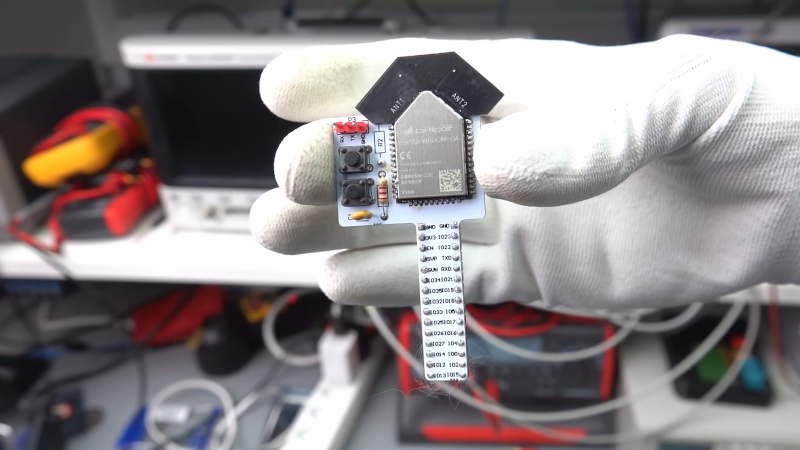ESP32: Is Two Better than One?

We’ve looked at the WROOM-DA module before. It’s an ESP32 with two antennas, and [Andreas Spiess] says it is the ugliest ESP32 he’s ever seen. But beauty is only skin deep, after all. Did [Andreas] find beauty in the twin antennas? Watch the video below and see for yourself.
According to the block diagram, the twin antennas are not used simultaneously but offer diversity one at a time. There is also 8GB of memory, double the amount of memory on traditional WROOM modules. Mounting the device was a bit difficult since most ESP32 carrier boards will block some portion of the antenna array.
Digging into the software, you can change modes so you can dedicate one antenna for receive and another for transmit or you can let the device work out what’s the best strategy on its own. As you see so often, the hardware refers to the antennas as units 1 and 2 while the software uses 0 and 1.
[Andreas] wanted to know if the automatic mode worked well, so he devised a test that required a trip to the roof to compare a standard module and the dual antenna module. The DA unit definitely seemed to work better. However, the auto mode acted in a surprising way. The test unit picked up quite a few stations on each antenna, but the auto mode received fewer stations than either of the antennas on its own.
For example, oriented in one direction, the module picked up 30 stations on the first antenna and 57 on the second. But the automatic mode received only 20 stations. There’s no explanation, but the video comments have quite a few theories.
We looked at these modules last year. If you need a kickstart to your ESP32 adventures, [Andreas] has many helpful videos. There are also these tutorials.
Post a Comment